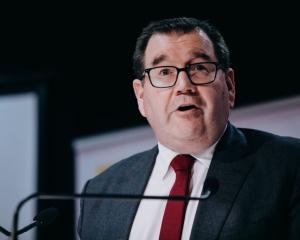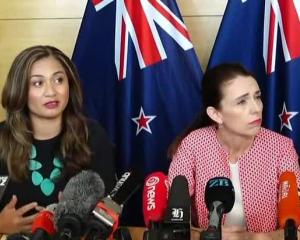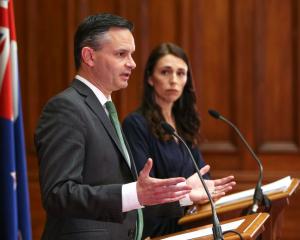
The campaign to retain power just got harder for Prime Minister Bill English with the sudden resignation from Parliament yesterday of United Future leader Peter Dunne.
Mr Dunne, the MP for Ohariu, was facing an electoral defeat by Labour candidate and former Police Association president Greg O'Connor.
Mr Dunne held his seat by 710 votes in 2014 against Labour's Virginia Andersen, who this year is standing in Hutt South, a seat National is targeting to win.
Mr Dunne has been a faithful supporter of National in the past nine years as a coalition partner and a junior minister in the Government.

National Party Ohariu candidate Brett Hudson, a list MP, has already sent out letters asking for National Party list votes only, in an effort to help Mr Dunne retain his seat.
Now Mr Hudson will have to step up his efforts to try to keep Mr O'Connor from winning the seat.
On paper, the Ohariu electorate is safe for National, as the party won 18,810 party votes in 2014 compared with Labour on 8771.
Mr Dunne attracted 13,569 votes in 2014, ahead of Ms Andersen on 12,859. Mr Hudson was a distant third on 6120.
Mr Dunne said said he had concluded, based on recent polling and other soundings he had made, there was a mood among Ohariu voters for a change of MP. That was unlikely to change.
The most controversial part of his career came in mid-2013 when Mr Dunne refused to hand over all 86 emails between himself and former Fairfax journalist Andrea Vance relating to the inquiry into the leaking of Rebecca Kitteridge's GCSB report following its illegal spying on Kim Dotcom.
Former prime minister Sir John Key told Mr Dunne if he would not co-operate with the inquiry he would have to resign his ministerial positions - which he did on June 7 that year.
In December 2013, Parliament's powerful Privileges Committee found Mr Dunne was entirely within his rights to decline the Henry Inquiry access to his emails. It further described the actions of the Henry Inquiry as ``unacceptable'', ``mystifying'' and ``unprecedented''.












